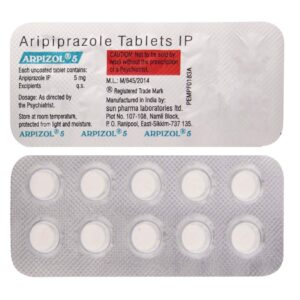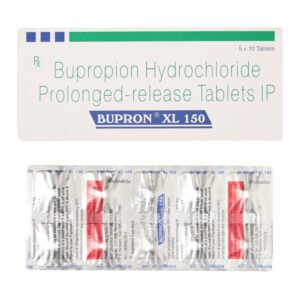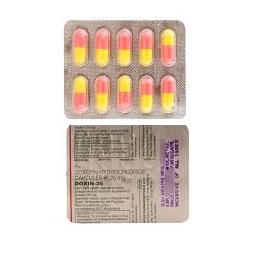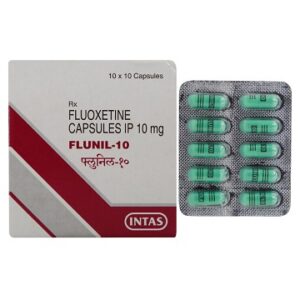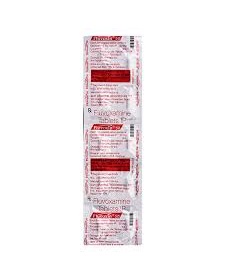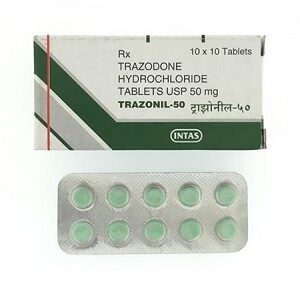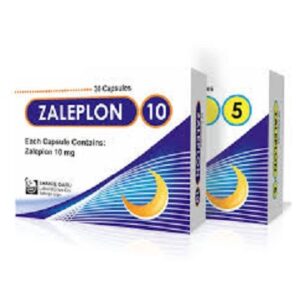Antidepressants
Showing all 9 results
Title: Illuminating the Path to Mental Wellness: A Deep Dive into Antidepressants
Introduction: In a world where mental health is increasingly recognized as a critical component of overall well-being, antidepressants stand as a beacon of hope for millions struggling with depression and related mood disorders. These medications, designed to alleviate symptoms of depression and restore emotional balance, have transformed the landscape of mental healthcare. In this article, we embark on a journey to explore the intricacies of antidepressants, shedding light on their mechanisms of action, common types, benefits, and considerations for use.
Understanding Depression: Depression is a complex and multifaceted mental health condition characterized by persistent feelings of sadness, hopelessness, and loss of interest or pleasure in activities once enjoyed. It affects people of all ages, backgrounds, and walks of life, and can significantly impair daily functioning and quality of life if left untreated. While psychotherapy and lifestyle modifications play crucial roles in depression management, antidepressant medications are often prescribed to help alleviate symptoms and facilitate recovery.
Mechanisms of Action: Antidepressants work by modulating neurotransmitter activity in the brain, restoring balance to chemical messengers involved in mood regulation. The most common neurotransmitters targeted by antidepressants include serotonin, norepinephrine, and dopamine. Selective serotonin reuptake inhibitors (SSRIs), such as fluoxetine and sertraline, increase serotonin levels in the brain by blocking its reabsorption, thereby enhancing mood and reducing symptoms of depression. Similarly, serotonin-norepinephrine reuptake inhibitors (SNRIs), such as venlafaxine and duloxetine, elevate levels of both serotonin and norepinephrine, providing dual-action antidepressant effects. Other classes of antidepressants, including tricyclic antidepressants (TCAs) and monoamine oxidase inhibitors (MAOIs), target different neurotransmitter systems to achieve therapeutic outcomes.
Types of Antidepressants: Antidepressants are available in various classes, each with its unique mechanism of action and potential side effects. Common types of antidepressants include:
- SSRIs: Selective serotonin reuptake inhibitors are widely prescribed as first-line treatment for depression due to their favorable side effect profile and effectiveness.
- SNRIs: Serotonin-norepinephrine reuptake inhibitors offer dual-action antidepressant effects and may be beneficial for individuals with depression accompanied by physical symptoms.
- TCAs: Tricyclic antidepressants are older medications that inhibit the reuptake of serotonin and norepinephrine, but they are associated with more side effects compared to newer antidepressants.
- MAOIs: Monoamine oxidase inhibitors are reserved for treatment-resistant depression due to their potential for serious interactions with certain foods and medications.
- Atypical Antidepressants: This category includes medications such as bupropion and mirtazapine, which exert antidepressant effects through unique mechanisms of action.
Benefits of Antidepressants: When used as part of a comprehensive treatment plan, antidepressants can offer significant relief from depressive symptoms and improve overall quality of life. Benefits of antidepressant therapy may include:
- Reduction in feelings of sadness, anxiety, and hopelessness
- Improved mood, energy levels, and motivation
- Enhanced ability to engage in daily activities and social interactions
- Prevention of relapse and recurrence of depressive episodes
- Restoration of overall emotional well-being and resilience
Considerations for Use: While antidepressants can be highly effective in treating depression, it is essential to approach their use with caution and careful consideration. Patients and healthcare providers should collaborate to develop an individualized treatment plan tailored to the patient’s unique needs, preferences, and medical history. Factors to consider when prescribing antidepressants include:
- Potential side effects and adverse reactions, such as nausea, insomnia, weight gain, and sexual dysfunction
- Drug interactions with other medications or substances, including over-the-counter drugs, herbal supplements, and alcohol
- Monitoring for signs of worsening depression, suicidal thoughts, or behavioral changes, especially in the early stages of treatment
- The importance of adherence to prescribed medication regimens and regular follow-up appointments to assess treatment response and adjust therapy as needed
Conclusion: Antidepressants have revolutionized the field of mental health treatment, offering hope and healing to millions affected by depression and related mood disorders. With their ability to rebalance neurotransmitter activity in the brain and alleviate symptoms of depression, these medications play a vital role in restoring emotional well-being and improving overall quality of life. However, the decision to use antidepressants should be made thoughtfully, weighing the potential benefits against the risks and considering individual patient factors. By fostering open communication and collaboration between patients and healthcare providers, we can continue to harness the power of antidepressants to promote mental wellness and resilience in the face of adversity.
